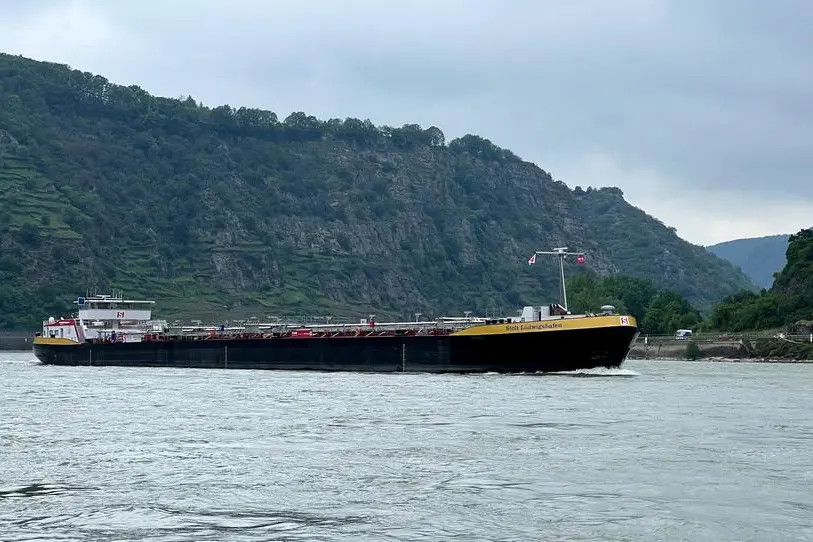PHOTO
Low water levels after dry weather have stopped cargo vessels from sailing fully loaded on the Rhine river in Germany, with surcharges added to the usual freight rates, shipping experts said on Wednesday.
Low water is hampering shipping on most of the river south of Duisburg and Cologne, including the chokepoint of Kaub. German inland navigation agency WSA said Kaub is at its lowest water level this year, at 85cm.
Dry weather and shallow water hindered shipping for several weeks in July. After recovering in August and September, Rhine water levels have again fallen in recent days.
Shallow water means vessel operators can impose surcharges on freight rates to compensate for vessels not sailing fully loaded, increasing costs for cargo owners.
"With the current water levels, no normal freight ship can sail the middle section of the Rhine fully loaded,” said WSA spokesperson Florian Krekel. "The maximum loading of the ships is currently between 40 and 70 percent, depending on the type of the vessel."
The Rhine is an important shipping route for commodities including grains, chemicals, minerals, ores, coal and oil products.
German inland waterways shipping consortium DTG said it currently does not fear supply bottlenecks despite the disruptions.
"The chemical and construction industries - usually large customers of inland shipping - are currently massively depressed," said DTG board member Roberto Spranzi, speaking about Germany’s weakening economy.
"The stores of coal-fired power stations are still well filled."
German companies faced supply bottlenecks and production problems in summer 2022 after a drought and heat wave led to unusually low water levels on the Rhine. (Reporting by René Wagner, additional reporting by Michael Hogan, editing by Deborah Kyvrikosaios)





















